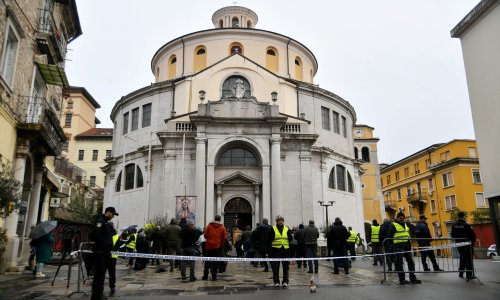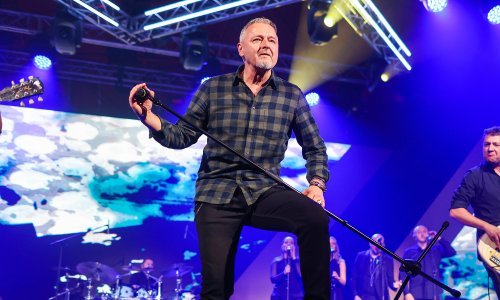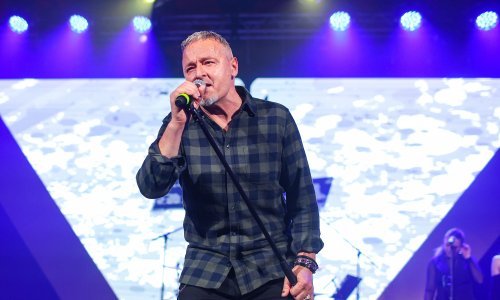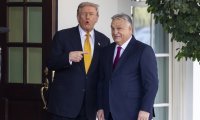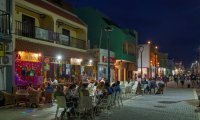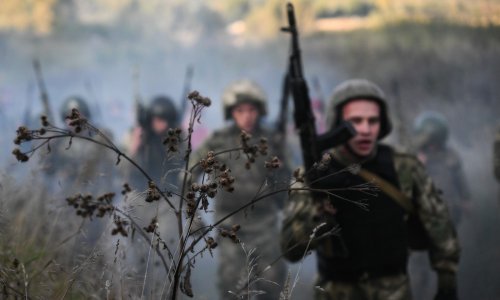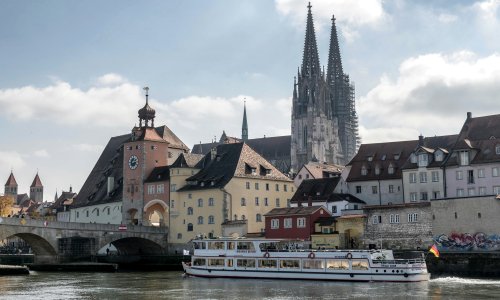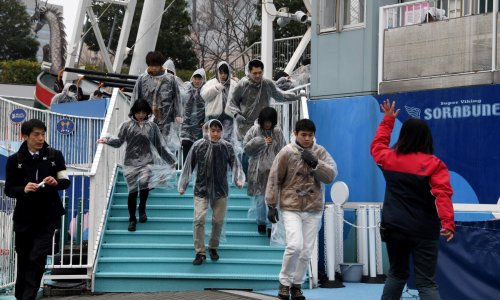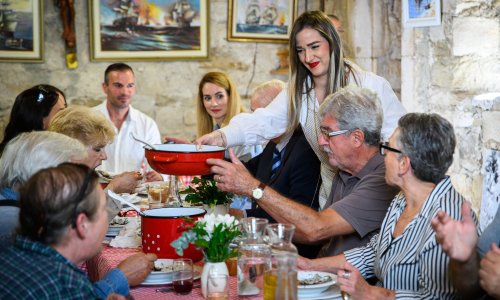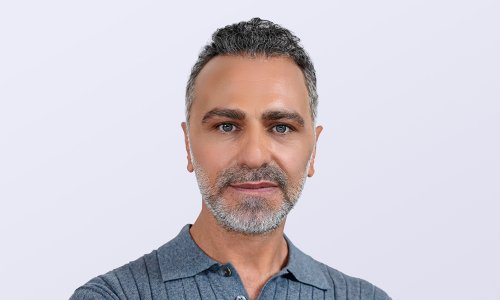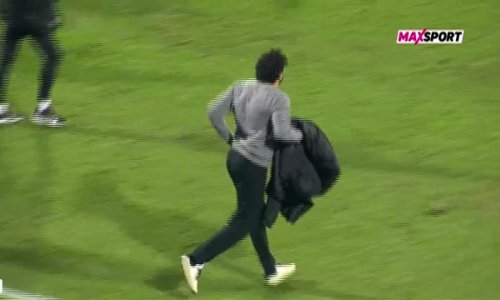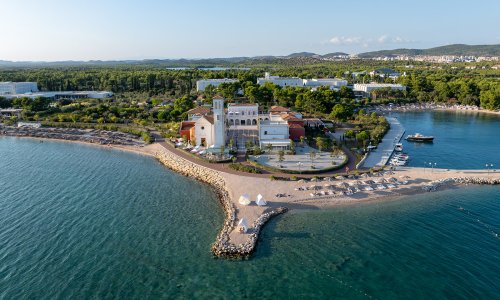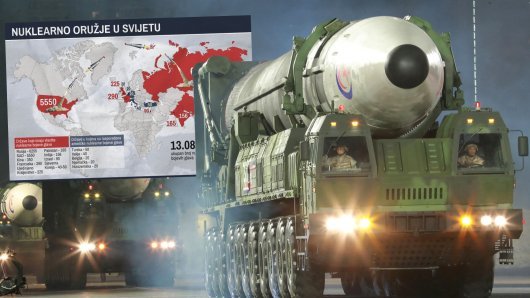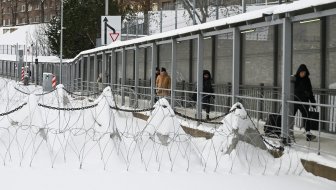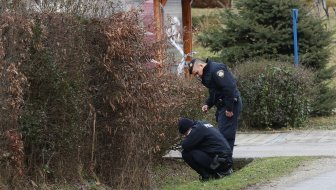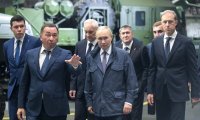The Islamic Centre in the northern Adriatic port of Rijeka was formally inaugurated on Saturday by Croatian President Ivo Josipovic, Bosnian Presidency member Bakir Izetbegovic and Qatari Religious Affairs Minister Ghaith bin Mubarak al-Kuwari, with thousands of believers, representatives of religious communities, senior Croatian state officials and guests from Croatia and abroad attending.
The inauguration was led by Rijeka Imam Hajrudin Mujkanovic and was addressed by Josipovic, Izetbegovic, Minister al-Kuwari, Croatian Parliament Speaker Josip Leko, the Croatian prime minister's envoy and president of the government's commission for relations with religious communities - Justice Minister Orsat Miljenic, the head of the European Union Delegation to Croatia - Paul Vandoren, the head of the Islamic Community in Croatia - Mufti Aziz Hasanovic, Grand Mufti Husein Kavazovic, the secretary-general of the Croatian Bishops' Conference - Msgr Enzo Rodinis, and the president of the Rijeka Islamic Community Majlis - Ekrem Budimilic.
Josipovic said in his address that Croatia is a country where people live together in diversity and where religious rights and freedoms are respected. "The Islamic tradition is woven into the fabric of Croatian social and spiritual history, and just like other minority traditions it enriches Croatian cultural identity," he said.
Josipovic said that the Islamic community and its leadership in Croatia has been working from the start on the development of the democratic society, promoting friendly and collaborative relations with state institutions. "They have been an example of rational and patriotic behaviour and of interreligious understanding and tolerance," he added.
Izetbegovic said that Croatia is a good place for Bosnian Muslims to live in and that the way their status was resolved in Croatia could serve as an example to other countries in Europe. "Here they live freely, fully exercising their ethnic and religious rights," he said, noting that the opening of the Islamic Centre today was sending out good signals to the world, and in particular to the Western Balkans region "after all dramatic events in its recent past."
Speaking of the promotion of new relations in the region, Izetbegovic said that during his visit to Belgrade last week he had felt the good will of top Serbian officials to move forward, "without sweeping the truth about the past under the carpet." He said that such efforts should be given support.
Qatari Minister al-Kuwari, who had arrived as an envoy of Emir Hamad bin Khalifa al-Thani, said that the Islamic Centre, which he described as a perfect masterpiece of architecture, would work on rectifying the distorted image of Islam and Muslims. It is necessary to follow the middle, moderate path in Islam after some individuals drew a distorted image of Islam, which has affected some Islamic communities in non-Muslim countries and resulted in calls for intolerance and fanaticism, he said.
He said that the Emir of Qatar had assisted in the construction of the Islamic Centre in Rijeka so that all Muslims here could act as mediators between the Islamic and the rest of the world and serve as an effective bridge between Muslims and non-Muslims.
The head of the Islamic community in Bosnia and Herzegovina, Husein Kavazovic, stressed the need for the co-existence of Muslims, Christians and Jews, and the importance of the fight for family and marriage. He said that "Croatia is a mature society, open to all its citizens, and Rijeka is a cosmopolitan city."
The Mufti of Zagreb, Aziz Hasanovic, said: "Today is a historical milestone for Rijeka and entire Croatia, a multicultural, multiethnic and democratic country. It is an example of how Muslim issues should be addressed, and it is also an example to Muslim countries of how to address Christian issues." He expressed hope that the Islamic Centre in Rijeka would mark the beginning of more effective cooperation between Croatia and Qatar in various areas, and that it would help strengthen the local tourist industry.
Parliament Speaker Josip Leko said that the Muslims were very well integrated into Croatian society and were contributing to its development. He expressed hope that dialogue and mutual understanding would continue to lead to the progress of society as a whole.
EU Ambassador Paul Vandoren said that the opening of the Islamic Centre affirmed Croatia's commitment to promoting the European principles of multiculturalism and diversity. He said he was confident that Croatia and all its religious communities would play an important role in promoting dialogue with churches and other religious communities in the European Union.
The Secretary General of the Croatian Bishops' Conference, Enzo Rodinis, highlighted the value of the Croatian approach to all religious communities. Rodinis said that Croatia showed a great deal of understanding for the Muslims to build their places of worships, and called on all those in a position to do so to also make it possible for Christians to build churches in predominantly Muslim countries.
The Islamic Centre, the place of prayer and gathering of 10,000-12,000 Islamic faithful in Rijeka and Primorje-Gorski Kotar County, has been declared the most beautiful mosque in Europe, the Islamic Community said.
The idea for the centre originated with the late Croatian sculptor Dusan Dzamonja and was realised by architects Darko Vlahovic and Branko Vucinovic.
The centre covers 5,300 square metres in area. It has four storeys with a mosque, offices of the Rijeka Islamic Community Majlis, a conference centre, a multi-purpose hall, a restaurant, community premises, flats, and an underground car park. The minaret is 23 metres tall.
Construction cost HRK 76 million (EUR 10 mln) and was financed by the Rijeka Islamic Community Majlis and many sponsors, the biggest of them being Qatari Emir Hamad bin Khalifa al-Thani. The conference centre will be named after him.
The foundation stone was laid on 3 October 2009 and construction began in March 2010.





